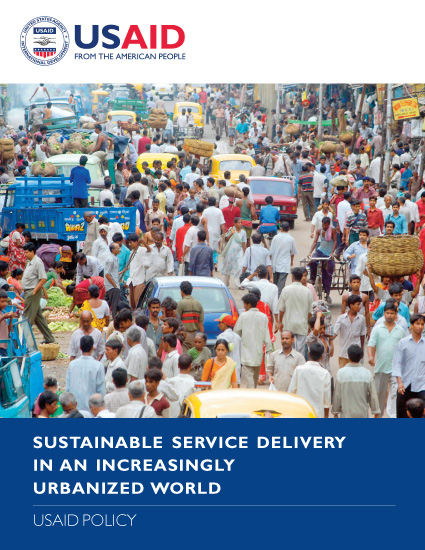For Immediate Release
WASHINGTON, DC – USAID Associate Administrator Mark Feierstein today released the Agency’s Sustainable Service Delivery in an Increasingly Urbanized World Policy, to respond to the unprecedented trend of urbanization, and the challenges it poses towards global efforts to end extreme poverty. Feierstein launched the document at an Atlantic Council event that featured a panel of specialists who discussed the phenomenon of urbanization and its impact on global development.
“One billion people currently live in slums without access to basic services like clean water, electricity or health services,” Feierstein said. “USAID’s field programs need to plan for the challenges that come along with rapid urbanization so we can more effectively help these communities reach their economic potential – and alleviate poverty.”
The new policy was written to help USAID program officers assist governments in which the Agency works to deliver services in an inclusive, transparent and sustainable manner. It provides practical approaches to help missions understand, shape and support urban programs uniformly and deliberately. In summary the policy aims to: a) strengthen political and financial sustainability; b) advance accountable service delivery models; c) foster market orientation and public-private collaboration; and d) support municipal resilience.
“An estimated 180,000 people move into cities each day,” Feierstein said. “This policy will help USAID and the development community to respond to the needs of the 1.4 billion who will have moved into urban areas between 2011 and 2030.”
The policy was the result of a collaborative process, researched and drafted by a policy task team. USAID released the policy for public comment in its draft form on the Internet and through social media. This marked the first time a document had been released for comment in this manner, and the draft solicited more than 100 comments for consideration.
The Sustainable Service Delivery in an Increasingly Urbanized World Policy joins a series of policies on important issues such as gender equality, climate change, violent extremism, water resources, and democracy, human rights and governance that USAID has created to direct its missions in the strategic planning process.
To read the policy or learn more about urbanization in development, please visit http://www.usaid.gov/results-and-data/planning/policy








Comment
Make a general inquiry or suggest an improvement.